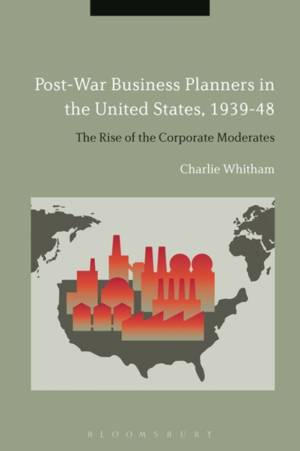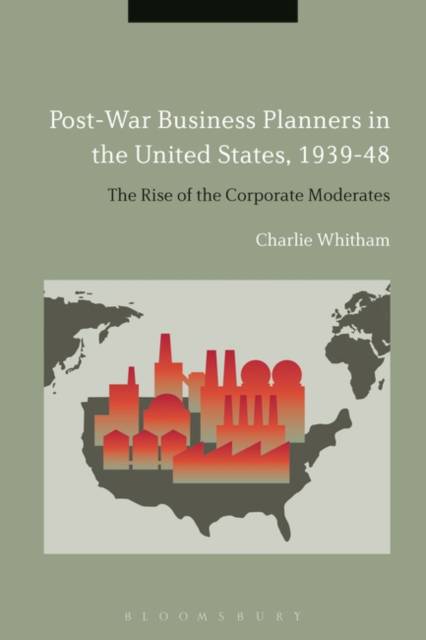
- Retrait gratuit dans votre magasin Club
- 7.000.000 titres dans notre catalogue
- Payer en toute sécurité
- Toujours un magasin près de chez vous
- Retrait gratuit dans votre magasin Club
- 7.000.000 titres dans notre catalogue
- Payer en toute sécurité
- Toujours un magasin près de chez vous
Post-War Business Planners in the United States, 1939-48
The Rise of the Corporate Moderates
Charlie Whitham
Livre broché | Anglais
81,45 €
+ 162 points
Format
Description
During the Second World War several independent business organizations in the US devoted considerable energy to formulating and advocating social and economic policy options for the US government for implementation after the war. This 'planning community' of far-sighted businessmen joined with academics and government officials in a nationwide endeavor to ensure that the colossal levels of productivity achieved by the US during wartime continued into the peace. At its core this effort was part of a wider struggle between liberals, moderates and conservatives over determining the economic and social responsibilities of government in the new post-war order.
In this book, Charlie Whitham draws on an abundance of unpublished primary material from private and public archives that includes the minutes, memoranda, policy statements and research studies of the major post-war business planning organisations on a wide range of topics including monetary policy, demobilization, labor policy, international trade and foreign affairs. This is the untold story of how the post-war business planners - of all hues - helped shape the 'moderate' consensus which prevailed after 1945 over a permanent but limited government responsibility for fiscal, welfare and labor affairs, advanced American interests overseas and established.Spécifications
Parties prenantes
- Auteur(s) :
- Editeur:
Contenu
- Nombre de pages :
- 304
- Langue:
- Anglais
Caractéristiques
- EAN:
- 9781350067271
- Date de parution :
- 19-04-18
- Format:
- Livre broché
- Format numérique:
- Trade paperback (VS)
- Dimensions :
- 156 mm x 234 mm
- Poids :
- 426 g







